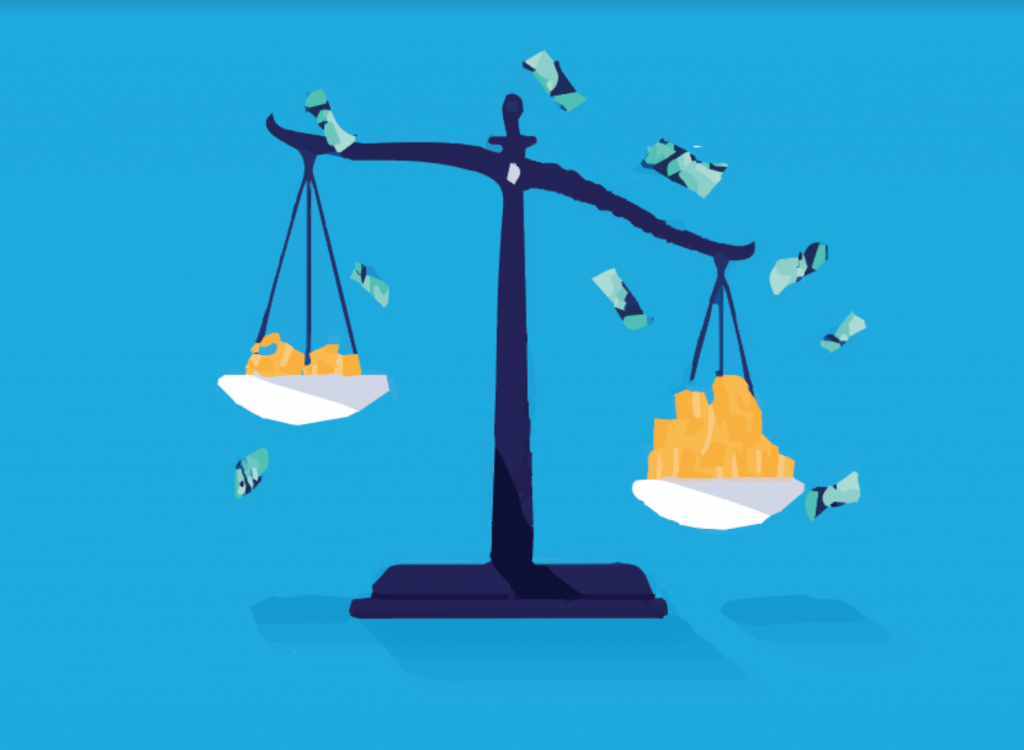The Gap
The economic gap is a large issue in the United States and multiple factors contribute to the large economic gap
Share this story

Nowadays it is more important to pay attention to our economic state. As high schoolers, many of us begin working as young as 14. The world surrounding us does affect us regardless of if we realize it or not. The inflation, fluctuating grocery prices, taxes, and even gas prices. For example, when you get paid at work, your paycheck will not come out exactly how you calculate by the hour. That’s because we have taxes taken out from each paycheck.
The Causes of the Economic Gap
The economic gap in the United States is caused by various factors. One of the primary drivers is the concentration of wealth in the hands of a small number of individuals and corporations. The top 1% of households in the United States control 40% of the country’s wealth, while the bottom 90% hold just 23% of the wealth. Another factor contributing to the economic gap is the decline in labor unions and the erosion of workers’ rights. As more and more jobs are outsourced to other countries or replaced by automation, the bargaining power of workers has decreased, leading to lower wages and fewer benefits. This has made it increasingly difficult for workers to achieve economic security and stability.
In addition, tax policies that favor the wealthy have widened the economic gap. For example, the Trump administration’s 2017 tax reform bill primarily benefited corporations and the wealthy, with little to no benefit for low-income families. This has allowed the wealthy to accumulate even more wealth while leaving the working class struggling to make ends meet.
The Consequences of the Economic Gap
The economic gap has far-reaching consequences for American society. One of the most significant consequences is the perpetuation of poverty. The lack of access to education, healthcare, and basic needs like food and housing means that many Americans are trapped in a cycle of poverty that is difficult to escape. This has long-term consequences for individuals, families, and communities, leading to decreased economic mobility and opportunities.
The economic gap also leads to social and political unrest. The wealthy have more power and influence over the political process, which can lead to policies that favor the rich over the poor. This creates a sense of injustice and inequality, which can lead to protests, social unrest, and even violence.
Possible Solutions
Addressing the economic gap in the United States will require a bipartisan (Both Parties) approach. One of the most important steps is to increase access to education and training programs that provide individuals with the skills they need to succeed in a changing economy. This can help create more opportunities for people to advance and achieve economic stability.
Tax policies can also play a role in addressing the economic gap. Implementing a more progressive tax system that places a higher tax on wealthy people can help reduce inequality and generate revenue to fund social programs that benefit all Americans.
Finally, investing in infrastructure, such as roads, bridges, and public transportation, can create jobs and help stimulate economic growth. This can provide opportunities for low-income individuals and communities, and create a more equitable and sustainable economy.

Sources
Board of Governors of the Federal Reserve System. “The Fed – Table: Distribution of Household Wealth in the U.S. since 1989.” Federal Reserve Board, https://www.federalreserve.gov/releases/z1/dataviz/dfa/distribute/table/#quarter:129;series:Net%20worth;demographic:networth;population:all;units:shares. Accessed 30 March 2023.
PEW Research Center. “Trends in U.S. income and wealth inequality.” Trends in income and wealth inequality, 9 January 2020, https://www.pewresearch.org/social-trends/2020/01/09/trends-in-income-and-wealth-inequality/. Accessed 30 March 2023.
Semega, Jessica, and Melissa Kollar. “2021 Income Inequality Increased for First Time Since 2011.” Census Bureau, 13 September 2022, https://www.census.gov/library/stories/2022/09/income-inequality-increased.html. Accessed 30 March 2023.
